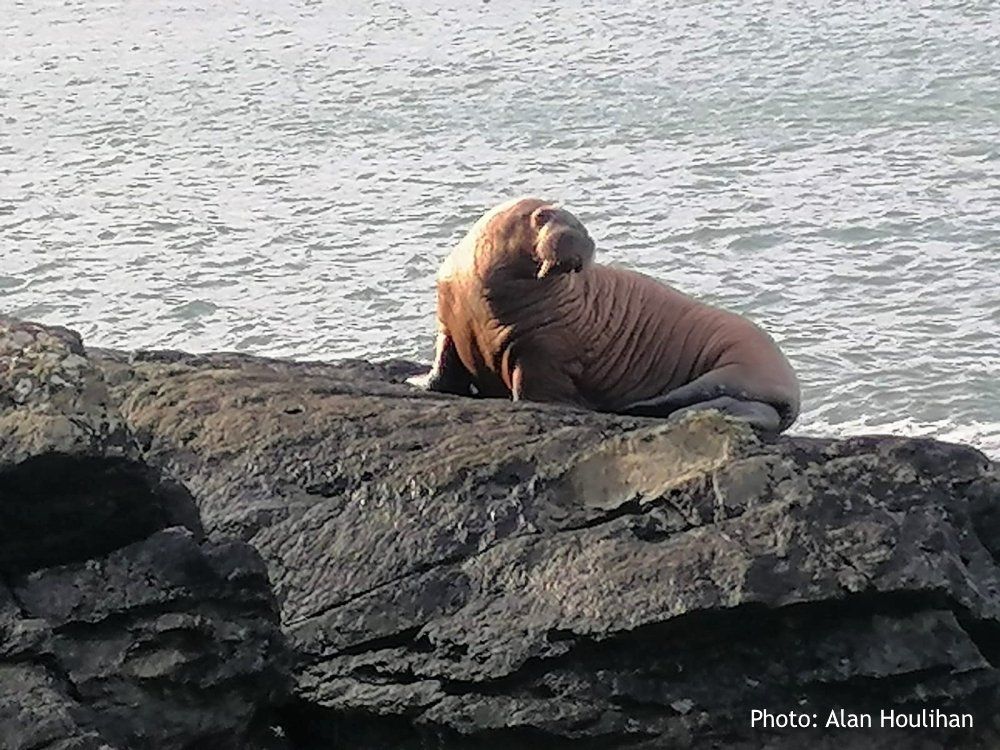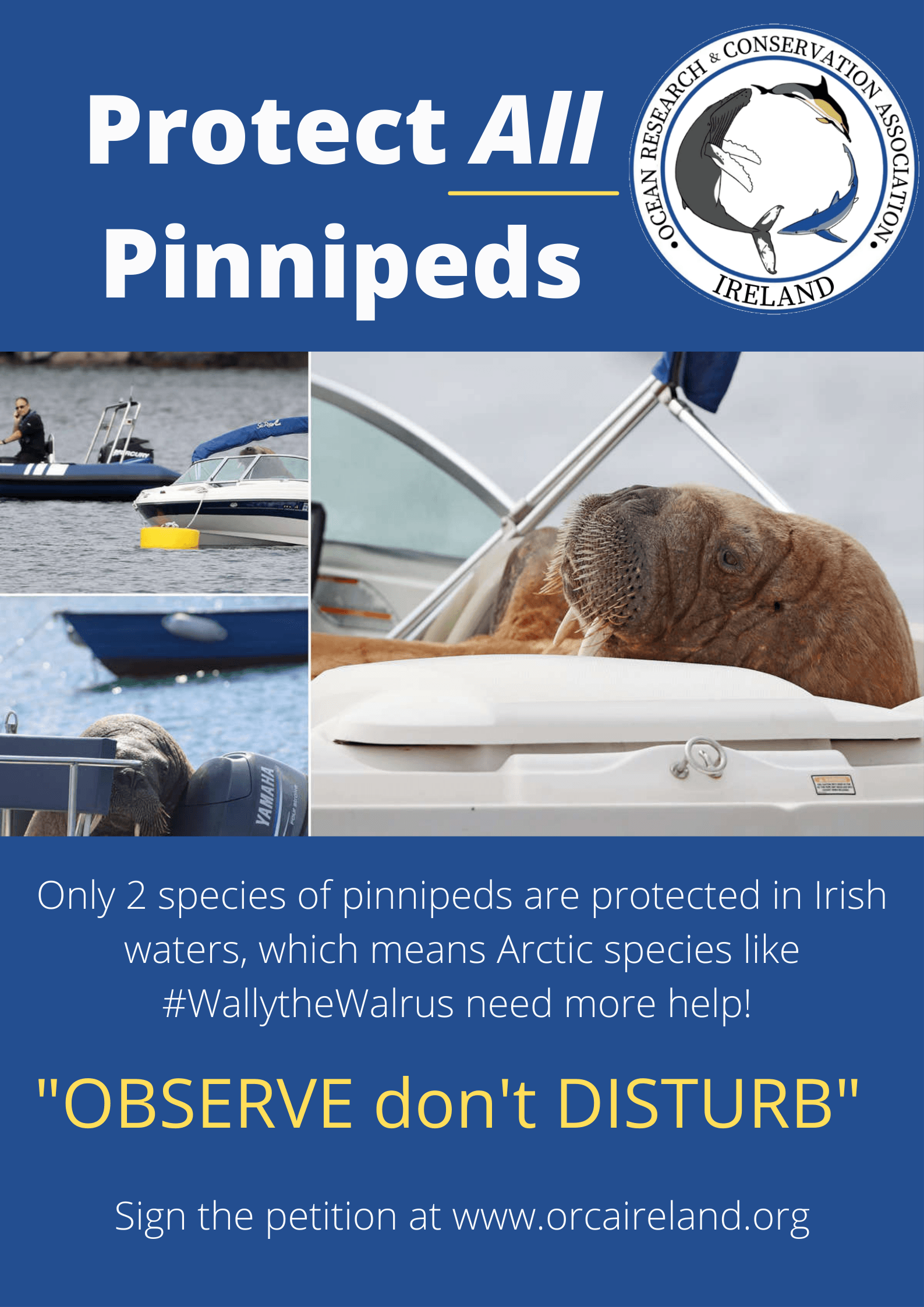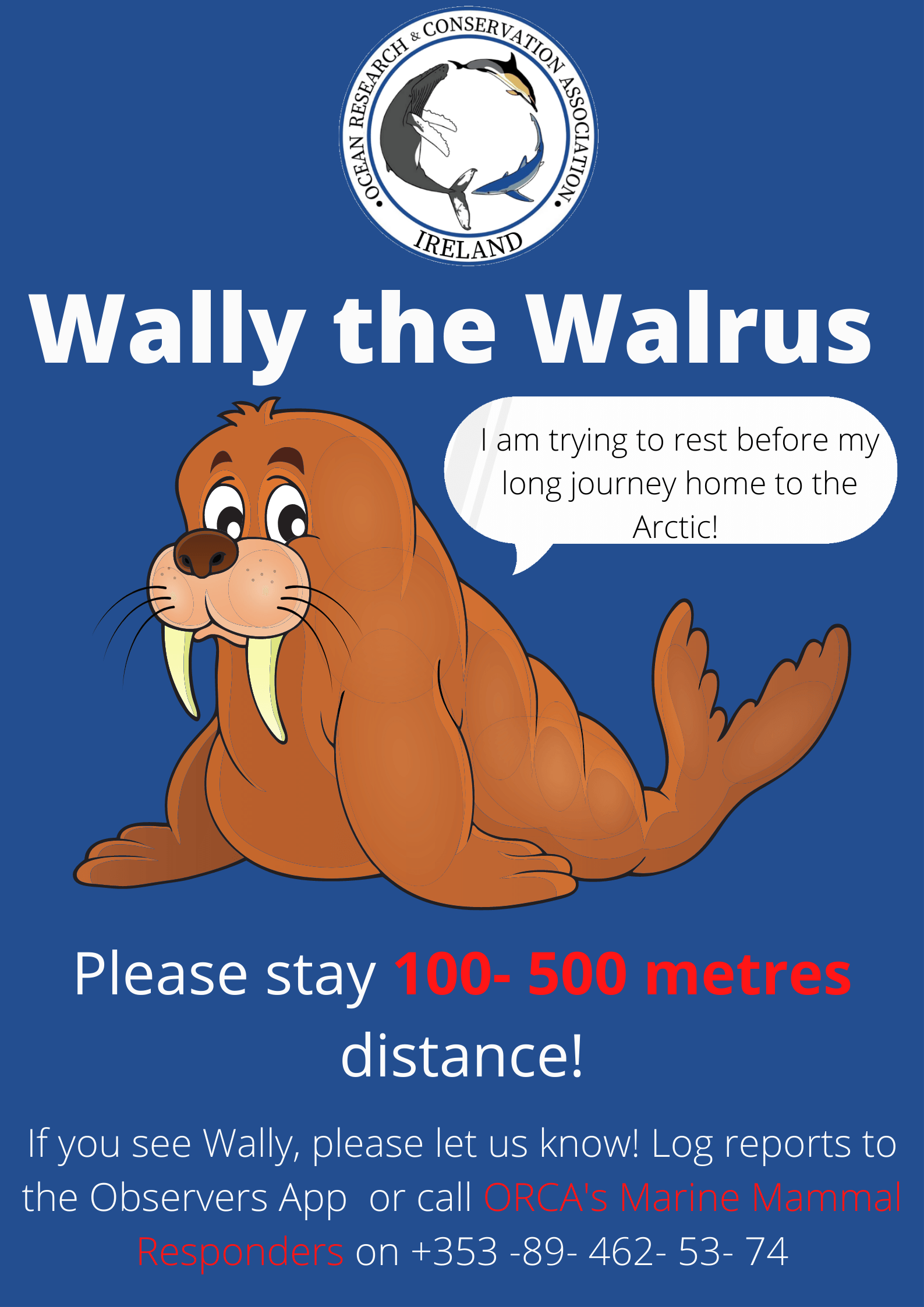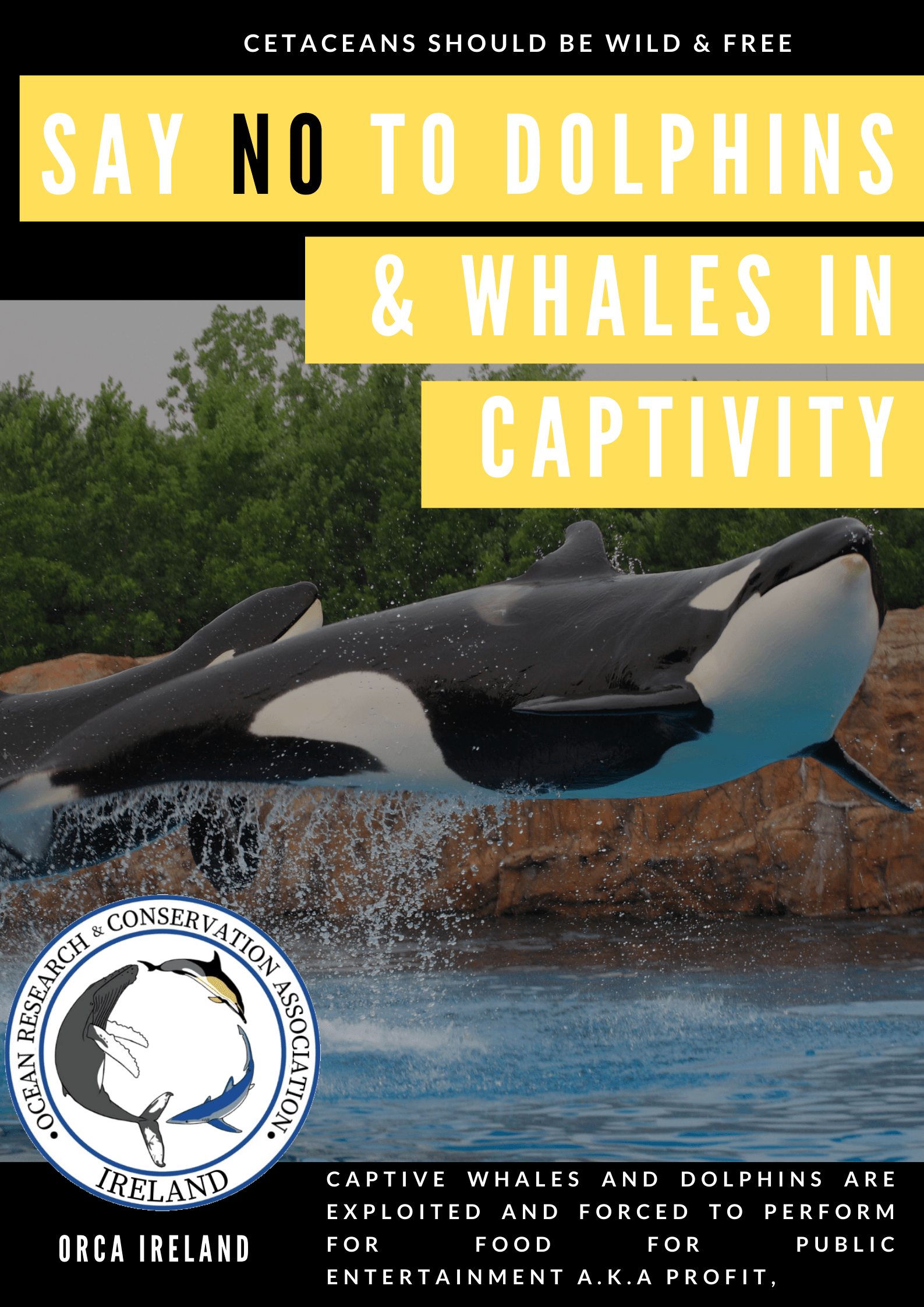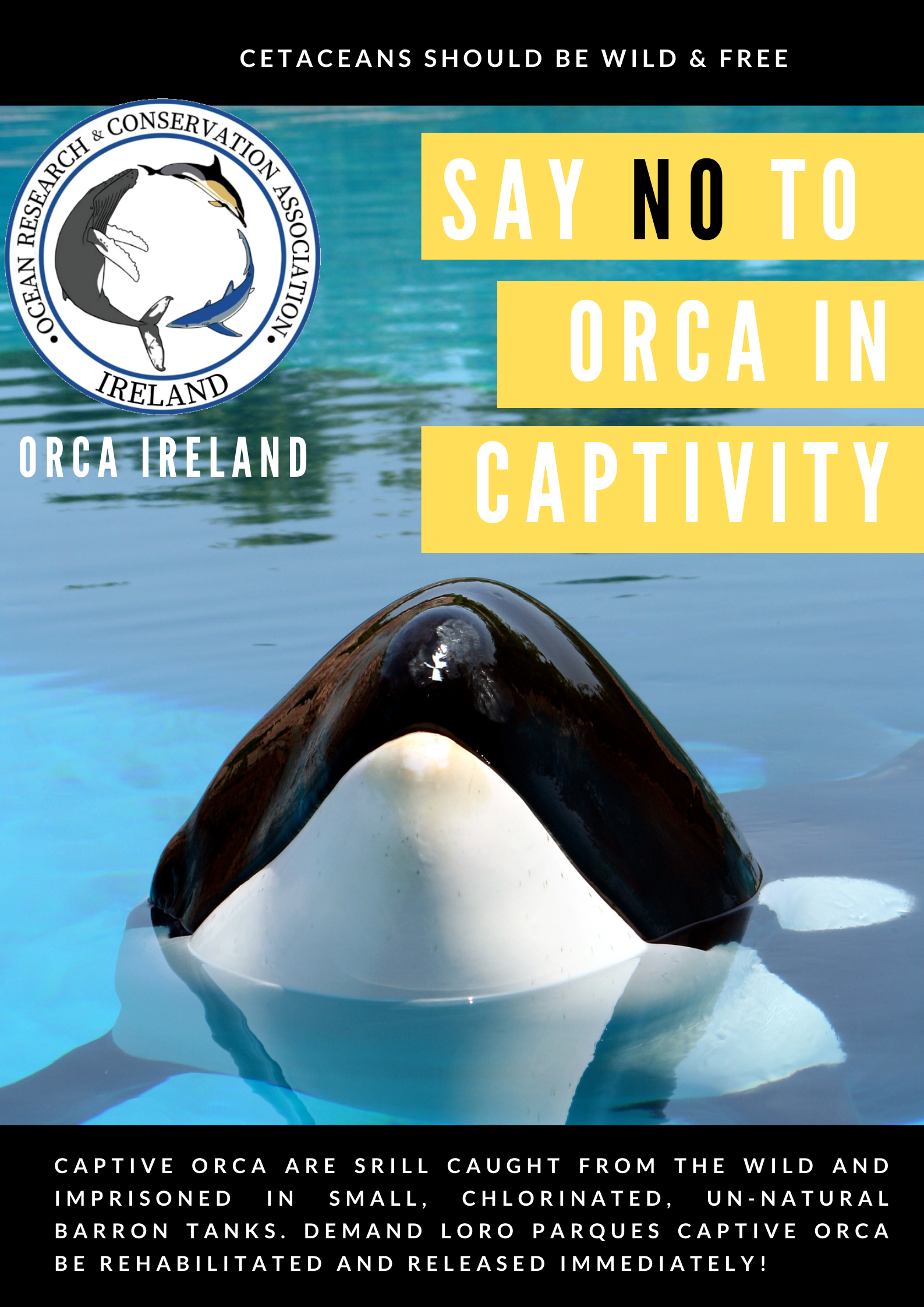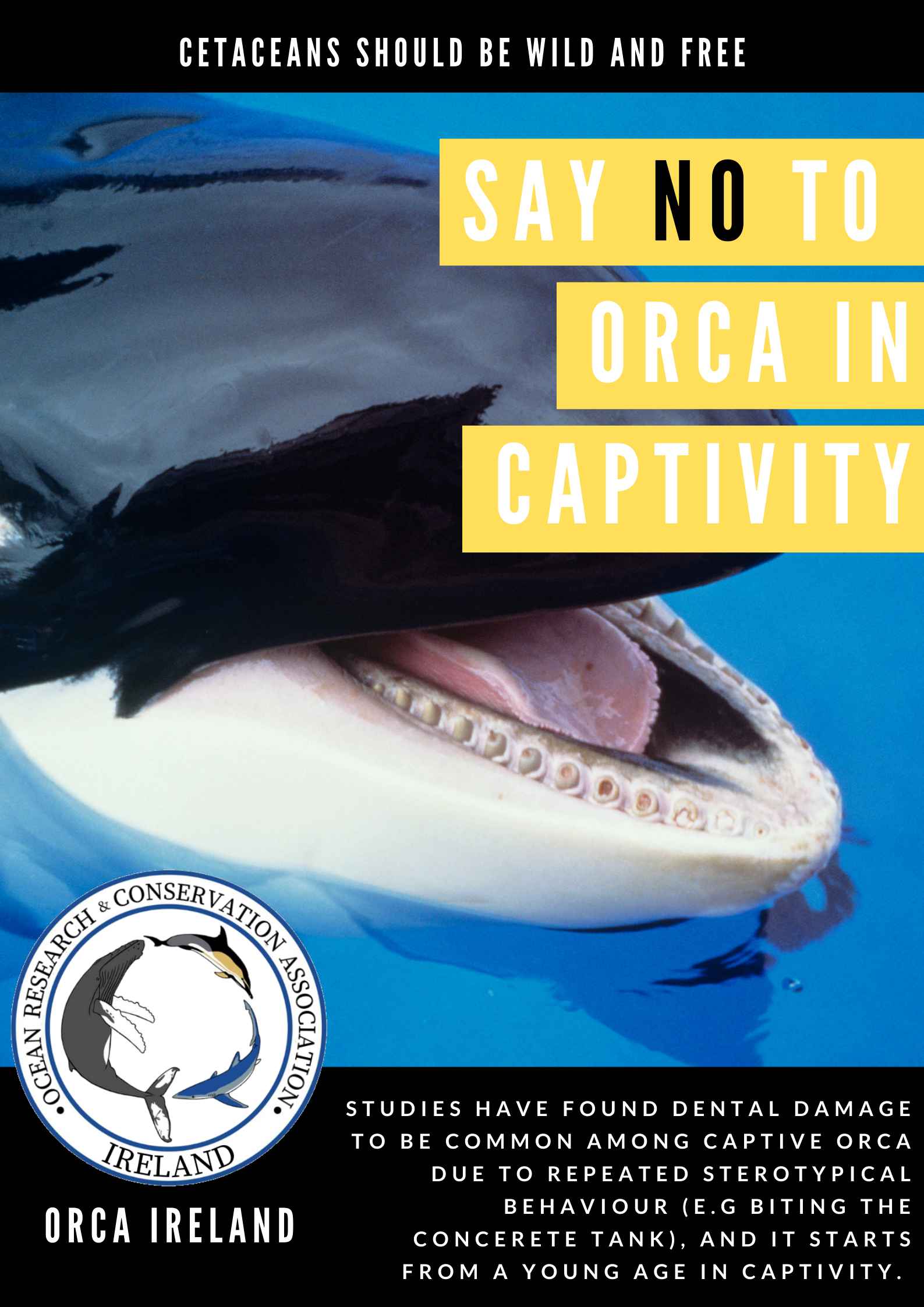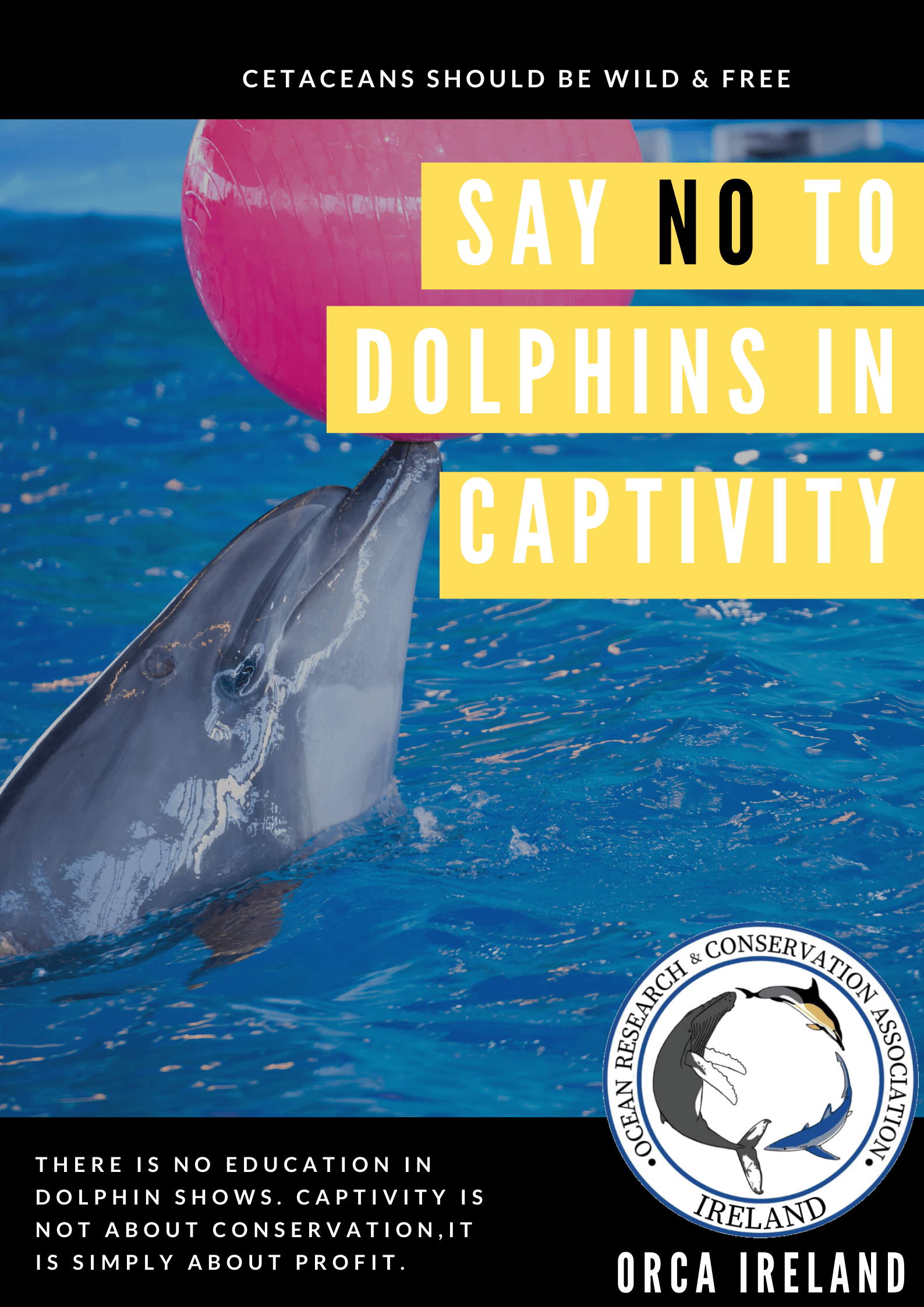Campaigns | Be The Change
BAN PAIR TRAWLING IN INSHORE IRISH WATERS
WE NEED YOUR HELP TO BAN ALL VESSELS PAIR TRAWLING WITHIN THE 6 NAUTICAL MILE ZONE IN IRISH WATERS! It is time to protect marine wildlife in Irish waters from destructive non-discriminate fishing practices such as pair trawling for herring and sprat in inshore Irish waters.
The Department of Agriculture, Food and the Marine (DAFM) has an open call to respond to a public consultation on pair trawling within the 6 nautical mile zone in Irish waters. The deadline to contribute to this policy is this Friday the 12th of April at 1 pm.
ORCA Ireland need your help to
BAN ALL VESSELS PAIR TRAWLING within the
6 nm zone
to protect marine wildlife, by adding your name to the list of supporters and by sharing this campaign.
WHY SHOULD YOU CARE? Read our infographic below....

By supporting our campaign you are supporting ORCA Ireland's response to the public consultation and the protection of marine wildlife in inshore Irish waters as follows:
- All sea-fishing boats excluded from pair trawling inside the six nautical mile zone and baselines.
- Implement at a National Level
- ORCA Ireland advocates for a phased approach in implementing the exclusion of all sea-fishing boats from pair trawling inside the six nautical mile zone and baselines, spanning 12-18 months. This approach aims to ensure a smooth transition, minimize disruptions, and facilitate compliance while safeguarding marine megafauna prey sources.
Send an pre-written email to trawlingconsultation@agriculture.gov.ie
Simply COPY AND PASTE this message below:
Dear Minister McConalogue,
I am writing to you on behalf of ORCA Ireland and myself to express our strong support for the prohibition of all sea-fishing boats from engaging in pair trawling within the six nautical mile zone off the Irish coast. As highlighted in the public consultation on trawling activity inside the 6 Nautical Mile Zone, the environmental impact of pair trawling in these waters is profound and concerning.
Pair trawling not only disrupts the marine food web, leading to declines in biodiversity but also results in significant bycatch, including marine megafauna such as seals, dolphins, and various non-target juvenile fish species. The preservation of critical habitats within the 6nm zone is crucial for the feeding and breeding of marine megafauna, as pair trawling targets forage fish, a vital prey resource for large whales. ORCA Ireland's stance is that a total exclusion of pair trawling in this area is essential for safeguarding these populations and maintaining ecosystem integrity.
Implementing a ban at the national level will ensure uniformity in fisheries management practices, provide comprehensive protection for marine life across their habitats, and facilitate effective enforcement. Furthermore, a phased implementation approach, ideally over a period of 12 to 18 months, is recommended to allow for a smooth transition, minimizing disruption to existing fishing activities and livelihoods while ensuring the long-term health and resilience of our marine ecosystems.
We believe that collaboration with the fishing community is vital for the success of this initiative, and ORCA Ireland is committed to working alongside all stakeholders to ensure balanced conservation efforts that consider socioeconomic factors.
We urge you to consider our position and the overwhelming evidence supporting the exclusion of pair trawling from the six nautical mile zone to protect marine biodiversity, minimize bycatch, and promote sustainable fisheries management.
Thank you for considering our views in this important matter.
Sincerely,
[Your Name]
[Your Position, if applicable]
[Your Contact Information]
Making a submission or observation
Members of the public who wish to make a submission or observation in writing in respect of this Public Consultation on Trawling Activity Inside the 6 Nautical Mile Zone may do so for 8 weeks from 13/02/2024 with the Public Consultation closing at 13:00 on 12/04/2024. All submissions or observations (quoting Inside 6 Trawling Consultation) can be addressed to the Minister for Agriculture, Food and the Marine:
Via online survey :
https://ec.europa.eu/eusurvey/runner/TrawlingConsultation
or
By email to: TrawlingConsultation@agriculture.gov.ie
or
By post to:
Public Consultation on Trawling Activity Inside 6nm,
Address:
Sea Fisheries Policy and Management Division, Department of Agriculture, Food and the Marine, National Seafood Centre, Clonakilty, Co. Cork , P85 TX47
PROTECT ALL
PINNIPEDS!
On the 14th of March 2021, a walrus was sighted off Valentia Island, Co. Kerry and reported to ORCA's Observers App. #WallytheWalrus then went on to travel to Pembrokshire, Wales and to the Isle of Scilly, before heading south to Cornwall and then onto La Rochelle and Les Sables d'Olonne, France and to Bilbao, Spain. More recently, on the 9th of August, Wally showed up in West Cork, where ORCA volunteers joined Seal Rescue Ireland and Cork Animal Welfare Group in monitoring efforts during designated #WalrusWatches and encouraging the public to keep a safe distance.
Despite out best efforts, Wally's location was released to the media and he was inundated with press, photographers and members of the public that paid no regard to his need for rest and sanctuary.
Two species of pinnipeds are resident in Irish waters, the gray seal and the harbour seal. Unlike these true seals (Phocids) or eared seals (Otariids), Walrus are part of their own fore flippered family - Odobenidae .
Currently gray seals and harbour seals are protected in Irish waters, but Arctic vagrants like "Wally" the Walrus remain unprotected and vulnerable to disturbance.
With the recent IPCC report on Climate change, it is predicted that we will get more Arctic species in Irish waters in the coming decades, with changing habitats and shifts in species distribution.
WILD & FREE- SAY NO TO CAPTIVITY
Cetacean captivity leads to a number of issues for dolphins and whales which are held in artificial concrete tanks to entertain crowds of oblivious on-lookers. These include pre-mature death, dorsal fin collapse, an un-natural diet and un-natural habitat, oral degradation, artificial pods, excessive aggression, lack of mental stimulation and limited space which can lead to abnormal stereotypical behaviours, In addition captive whales are subject to captive breeding programmes and mother/calf separation.
According to the National Oceanic and Atmospheric Administration (NOAA), wild killer whales can live from 50 to 100 years old. To date, 170 killer whales have died prematurely in captivity, with life expectancy of 85% of females in SeaWorld likely to die before the age of 25 years.
CATPTIVE ORCA RECORDS
ORCA Ireland's "Database of Captive Killer whales" tracks whale's taken from the wild or bred in captivity in the marine park industry around the world.
There are currently 60 killer whales in being held in captive facilities around the globe. To view a detailed account of captive orca records click on the 'Captive ORCA Records' button below. A detailed account of killer whales which are being held in captive facilities in Europe, Asia and the U.S, can be found, however, it is not always possible to find information on whales held captive in Russian facilities. We regularly update the status of captive killer whales and keep records of whales which have died in captivity. These records have details of deceased orca since 1961, and includes "Keiko", the whale used in blockbuster 1990's film "Free Willy".
Recently Deceased Captive Orcas
| Name | Population/Ecotype/ Relatives | Sex | Birth/ Capture Date | Est. age at capture | Time in Captivity | Date of death | Age of Death | Cause of Death | Facility |
|---|---|---|---|---|---|---|---|---|---|
| Kirill | Russian Transient. | M. | August 2018. (capture) | 1 year. | 204 days (>6 months). | 21st February 2019. | 1 year. | Undisclosed- frostbite and pneumonia. | Srednyaya Bay, Primorsky Krai, Russia. |
| Kyara | Takara, Kyuquot | F. | 19th of April 2017 (born captive) | Since birth | 96 days (3 months) | 24th July 2017 | 3 months. | Infection - pneumonia | SeaWorld San Antonio, Texas, USA. |
| Victoria / Vicky | Kohana, Keto | M. | 3rd August 2012 (born captive) | 6 months - 1 year | 317 days (10 months) | 16th June 2013 | 10 months. | Intestinal Complications | Loro Parque, Tenerife, Spain. |
| Pascuala | Bay of Mantanchén, San Blas, Nayarit, Mexico | F. | 10th April 2007 (capture) | 2 weeks | 61 days (2 months) | 10th June 2007 | >2 months. | Immune System Failure. Malnutrition. Infection. | Vallarta Adventures Dolphin Center, Mexico |
| Halyn | Kayla, Keet | F. | 9th October 2005 (born captive) | Since birth | 980 days (2 years, 8 months, 6 days) | 15th June 2008 | 2 years | Acute Necrotising Encephalitis | SeaWorld San Antonio, Texas, USA |
| No name | Ran, Kyu | F. | 26th August 2004 (born captive) | Since birth | 48 hrs | 28th August 2004 | 2 days | Broken Skull | Nanki Shirahama Adventure World, Japan |
| Athena | Kiska, Kandu 7 | F. | 8th August 2004 (born captive) | Since birth | 1750 days (4 years, 9 months, 16 days) | 24th May 2009 | 4 years | Unknown | Marineland Ontario, Canada |
| April | Nootka 5, Kandu 7 | F. | 7th April 2004 (born captive) | Since birth | 11 days | 18th April 2004 | 11 days | Malnutrition | Marineland Ontario, Canada |
| Skyla | Kalina, Tilikum | F. | 9th February 2004 (born captive) | Since birth | 6240 days (17 years, 1 month, 2 days) | 11th March 2021 | 17 years | Unknown - awaiting necropsy results. | Loro Parque, Tenerife, Spain, |

